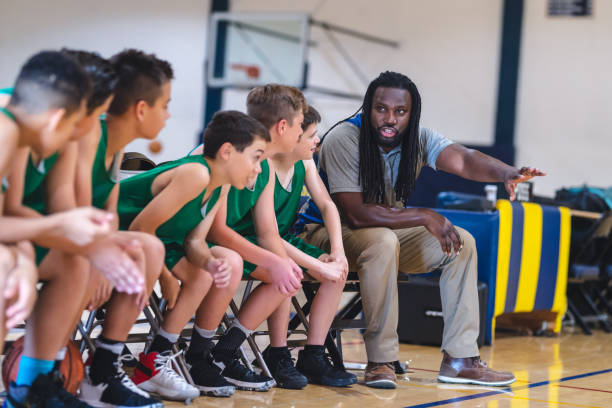Coaching youth basketball is an incredibly rewarding yet challenging endeavor. To ensure young athletes develop both their skills and a love for the game, it’s essential to focus on five key elements that can make a significant difference in their growth and enjoyment. In this blog post, we’ll explore these crucial aspects, from fostering a positive and inclusive team environment to implementing effective practice routines, emphasizing fundamental skills, teaching game strategy, and encouraging sportsmanship. By honing in on these elements, coaches can help shape not only better players but also well-rounded individuals who carry the lessons learned on the court into their everyday lives.
To guide your young players effectively and create a successful season, you must focus on essential aspects of coaching. In this article, we’ll break down the five key elements of coaching youth basketball, offering insights into how to plan, execute, and manage your coaching responsibilities.
1. Framework for Coaching Youth Basketball
- Understand your coaching philosophy – Are you offense-oriented, defense-focused, or balanced?
- Define your vision for the season – What do you want your players to achieve?
- Set clear objectives – Determine what success looks like for your team, whether it’s winning games, player development, or fostering teamwork.
- Communicate your vision to players and parents. Transparency is crucial in managing expectations.
2. Evaluation in Coaching Youth Basketball
- Assess player skills and abilities – Conduct tryouts or evaluations to understand your players’ strengths and weaknesses.
- Consider your team’s needs – Based on your coaching philosophy and the players available, identify the skills and positions required.
- Look for attitude and commitment – Consider players’ attitudes, work ethics, and commitment to the team.
- Beware of parental influence – Keep in mind that sometimes, you may need to prioritize teamwork and attitude over raw talent.
3. Offensive and Defensive Systems
- Simplify your systems – Keep offensive and defensive strategies straightforward, especially for younger players.
- Focus on teaching core concepts – Emphasize fundamental skills, like ball handling, passing, and defense.
- Adapt your systems – Tailor your approach based on the age and skill level of your team.
- Balance offense and defense – Allocate practice time according to your team’s strengths and weaknesses, ensuring a well-rounded approach.
4. Practice Planning
- Prioritize the essentials – Plan your practices around four key elements: offense, defense, transition to offense, and transition to defense.
- Design a balanced practice – Allocate time appropriately to each element, considering your coaching philosophy.
- Be flexible – Have backup drills and exercises ready in case something isn’t working during practice.
- Overprepare – It’s better to have too much planned than to run out of activities during practice.
5. Game Management
- Pre-game preparation – Ensure players arrive early to settle nerves, warm up, and discuss strategy.
- Effective timeouts – Use timeouts strategically to change momentum, address issues, and reinforce key points.
- Post-game reflections – Encourage players to recognize their teammates’ contributions and discuss areas for improvement.
- Engage with parents – Foster a sense of community by involving parents in discussions about upcoming practices and games.
Coaching Youth Hoops Masterclass
To delve deeper into these coaching fundamentals and gain access to valuable resources, consider enrolling in our Coaching Youth Hoops Masterclass. This online course covers each of the five key elements in detail, providing worksheets, whiteboard sessions, and expert insights to help you prepare for a successful season. Visit Coaching Youth Hoops Masterclass to learn more.
Remember, coaching youth basketball is about more than winning games. It’s about developing young athletes and instilling important life skills. With the right approach and preparation, you can make a positive impact on your players’ lives both on and off the court. Good luck with your coaching journey!
Related: 3 Steps to Planning a Successful Youth Basketball Season
Resources:
Coach Unplugged Podcast:
If you found this useful, don’t forget to check out additional blog posts at TeachHoops.com. Also, check out TeachHoops on Facebook, Twitter, Instagram and YouTube.




